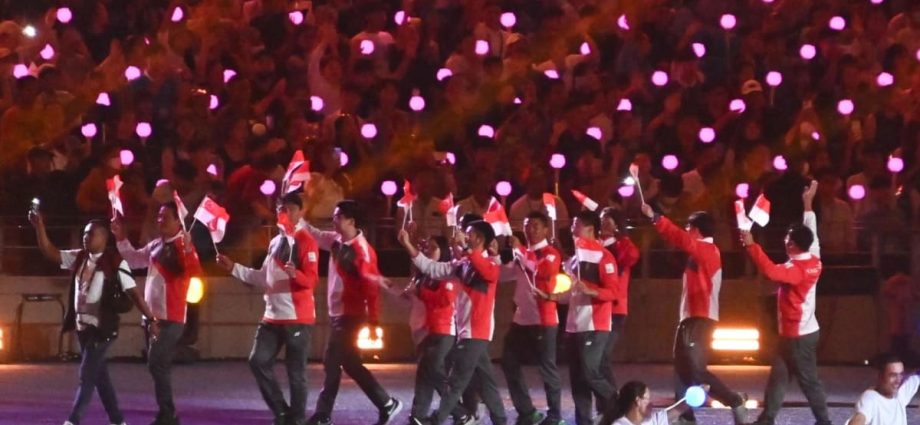
SINGAPORE: Members of Parliament on Thursday (Jul 6) voted in favour of a Workers’ Party motion to support the accomplishments of Singapore’s athletes and para-athletes, but stopped short of agreeing to call on the government to re-evaluate its management of sports.
Beyond supporting Singapore’s athletes, the original motion called on the government to “undertake a thorough evaluation of the areas of improvement in Singapore’s sporting ecosystem” and “commit to realising clear, achievable goals for sporting success over the coming decade”.
MP Darryl David (PAP-Ang Mo Kio) proposed to amend the motion to reflect that the government would instead “continue its thorough evaluation”. He also proposed changing “clear, achievable goals for sporting success” to “our goals in sports”.
All MPs from WP and the Progress Singapore Party’s Non-Constituency MPs who were present voted against these two amendments. The amendments were passed with a majority.
The majority of the house then voted in favour of the amended motion, while all MPs from WP and PSP’s NCMPs who were present voted against the amended motion.
In his closing speech, Associate Professor Jamus Lim (WP-Sengkang) said WP could not support Mr David’s amendments in full, though it would be willing to “stand corrected”.
“While we accept that the government has indicated that they have performed a number of reviews and continues to monitor performance, we’ve not seen the concrete fruits of such thorough evaluations for the sporting ecosystem as a whole,” he added, calling for the government to commit to releasing a report or review documenting this effort.
The party also did not support the other amendment because it “wiggles out of one of the most important fundamentals for sporting performance” – appropriately defining success, said Assoc Prof Lim.
“It is important to have clarity on what our goals are, and ideally set up not only eventual but also intermediate targets that we can credibly achieve,” he added.
“Accepting the amendment also robs us of being able to meet the sort of mass participation goals that we alluded to that are imminently achievable. We also doubt that the government would be comfortable with such ambiguity for other endeavours.”
Based on Singapore’s income, the country has “unfortunately not only punched way below our weight” in terms of sporting achievements, but has “consistently gotten worse”, said Assoc Prof Lim in his opening speech.
“What explains our nation’s anomalous outcomes? As it turns out, money alone is not enough. Countries that have prioritised sporting achievement, including at the highest level, know that this prioritisation is what is important,” he added.
During the five-hour debate, Senior Parliamentary Secretary for the Ministry of Culture, Community and Youth Eric Chua supported the amended motion, and stressed that regular and consistent reviews are conducted as part of Singapore’s high-performance sports ecosystem.
“Through our review, we examine what has worked, what has not worked, what we could do differently and chart our future priorities,” he continued.
“Our goal is to win of course, but we must accurately define what winning is.”
While Singapore cannot compete directly with countries with large populations, it has also performed well in many sports, including swimming, sailing, table tennis, badminton and silat.
Recalling a previous conversation with national badminton player Loh Kean Yew about the expectations Singaporeans have for him, Mr Chua called for the country to be more sensitive and supportive.
“The weight of an entire nation’s expectations was squarely on this young man’s shoulders, and he was fully aware of that. Perhaps overly so,” he added.
Mr Chua urged Singaporeans to “not forget that it is not all just about medals”.
“Rather, it is about journeying with our athletes as they work through their daily struggles in realising their maximum potential.”

